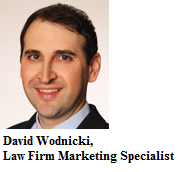Making Connections to Grow Your Law Firm
Tricia Meyer is our guest author who gives her advice on growing a law firm.
Like any business, a law firm must strategize to attract clients. Through networking, mentoring and participating in speaking engagements, I have shared my expertise and built credibility in my community and within my practice area. This has ultimately helped me grow my business. Following are a few tips I have learned along the way I think other lawyers, and business owners in general, will find helpful.
1. Hold office hours
Many local chambers and business organizations provide client services firms the opportunity to host office hours and meet briefly with their members. I host office hours regularly, which has afforded me the opportunity to help entrepreneurs and connect with people outside of my network. Meeting people and making an impression before they actually need your services is a great way to start relationship building and letting people know how you can help them in the future. I have garnered many new clients who have come back to me as a result of the time I spent with them during office hours.
2. Share your knowledge through speaking engagements
Speaking engagements will position you and members of your firm as experts, allowing more people to know who you are, what you do and how you can help.
Select speaking opportunities where you can address a specific issue and demonstrate you know the topic inside and out. This will also attract a more targeted audience of people interested in the topic you are addressing. Also, think outside the box and seek speaking opportunities that help you reach markets where you want to grow your business.
3. Manage your calendar thoughtfully
When you consider speaking or networking event opportunities, evaluate each one to ensure you’ll be exposed to potential clients or meaningful connections. You and your firm must participate in enough events to make an impact, but it is crucial not to spread yourself too thin. Aim to speak often but not everywhere; you want people to look forward to a chance to hear you speak.
 Tricia Meyer is managing attorney of Chicago-based Meyer Law, specializing in tech. She is well connected in Chicago's tech community, regularly provides office hours at a local tech co-working space, and speaks at events geared toward tech entrepreneurs. She credits all of these things for Meyer Law's successful growth.
Tricia Meyer is managing attorney of Chicago-based Meyer Law, specializing in tech. She is well connected in Chicago's tech community, regularly provides office hours at a local tech co-working space, and speaks at events geared toward tech entrepreneurs. She credits all of these things for Meyer Law's successful growth.
 Sara Derakhshanian
Sara Derakhshanian According to
According to  This is a guest blog post by
This is a guest blog post by 


